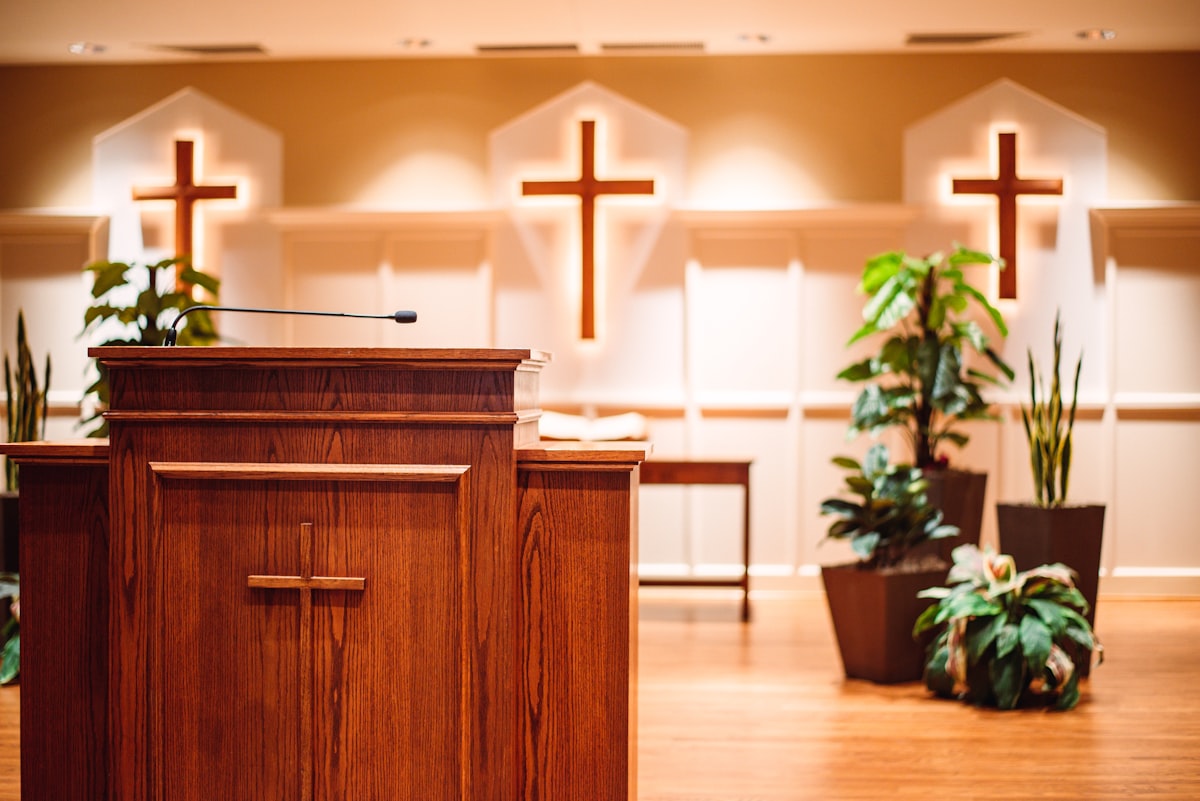Politics and the Pulpit
In the American context, the separation of church and state means that the American government cannot sponsor...

Originally published in Issue #9 on May 28, 2021
In the American context, the separation of church and state means that the American government cannot sponsor a “state church,” like our British friends have with the Anglican Church. It does not mean that any particular church is unable to take political sides. But should a church take political sides? What insight can scripture give us into politics and the pulpit?
The Old Testament
We must be cautious in what we can pull from the Old Testament. Not only did “churches” not exist then, but “politics” didn’t happen in the way we understand it today, either. There were no political parties and no democracy. There were monarchs with absolute power and prophets who spoke God’s word directly to them. The prophets were not preachers like we know them today.
Nevertheless, I think that we can take a few principles from the Old Testament. While we tend to think of the prophets as fortune-tellers, that’s not their role. Their role was to speak God’s word to the powerful, and prophesying judgment upon rulers and nations for failing to uphold their moral duty was a part of that. John the Baptist, the last of the Old Testament prophets, was killed because he condemned Herod's marriage to his sister-in-law.
Today, the church as a whole carries that prophetic role to the nations to reflect God's moral character, but not in the same way. The church itself should bear witness and warning to the powerful when they abuse their power and oppress the weak. But how we see that bear out in practice changes in the New Testament.
The New Testament
In the beginning of the New Testament, Israel was occupied territory. The relationship between the Jews and Rome was fraught with political tension. Factions within the Jews who wanted to work with Rome and who wanted to fight had extremely strained relationships.
Into this tension, Jesus was born and worked his ministry. People on both sides tried to pull Jesus into their political (and theological) disagreements, one way or the other. Yet, Jesus refused to enter the political fray (Matthew 22:17-22, for example).
Likewise, the apostles taught obedience to political authority despite the pressure and persecution upon them (Romans 13:1-7). During Paul's imprisonment, he doesn't proclaim the moral failings of the leaders. Instead, he preaches Christ crucified. Does that mean that the pulpit and politics should be entirely separate? Just as I don’t see any Biblical basis for explicit political preaching or nationalism from the pulpit, neither do I think it’s quite right to say that the pulpit should be entirely separate from the political realm.
The primary role of the New Testament preacher is to, well, preach. But in what way? I would argue that expositional preaching—preaching through the text of scripture and explaining its meaning—is the primary duty of a pastor (2 Timothy 4:2). Scripture, while not political, elevates certain moral values (what kind of character we should have) and places certain moral duties (what we should do and not do) on us. Jesus and the early Christians were less concerned about having political power than they were about reforming society from within by working in their communities as Christians—little Christs. By teaching the body of Christ what the scriptures say and how that should bear upon our moral lives, the preacher builds souls who can reform society, not by owning power, but by being the servant of all.
Jesus called them over and said to them, “You know that those who are regarded as rulers of the Gentiles lord it over them, and those in high positions act as tyrants over them. But it is not so among you. On the contrary, whoever wants to become great among you will be your servant, and whoever wants to be first among you will be a slave to all. For even the Son of Man did not come to be served, but to serve, and to give his life as a ransom for many.”
– Mark 10:42-45 (CSB)
This is not an exhaustive look at the relationship between the church, pastors, or Christians and politics. After all, I am a Christian, and while I try not to directly reference politics, the issues I write about sometimes are politically charged. And I try to do that with charity and balance.
In this article, I wanted to specifically reference Lord's Day preaching to the body of believers. Whether you agree with my Biblical theological (looking at an issue through the broad sweep of scripture) view on this issue or not, I hope that we can all think critically about this issue. Too much of modern American church seems to be taken for granted rather than brought from the text and theology of scripture.
